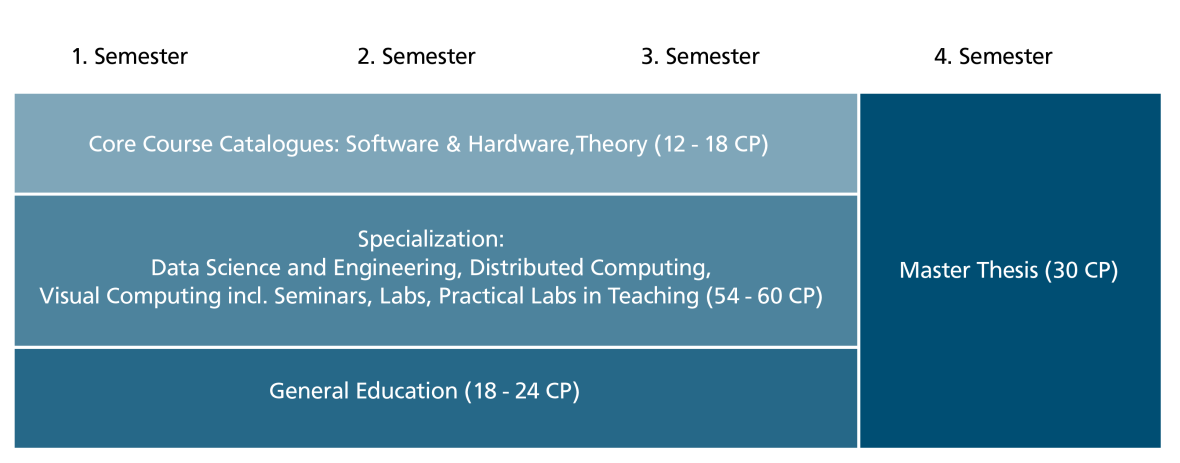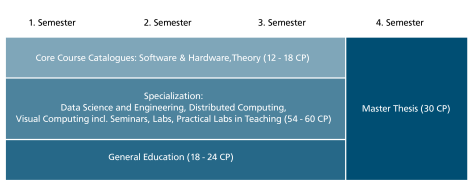In this research-oriented Master's program in English, students expand and focus their subject-specific and interdisciplinary competences from a previous Bachelor's program.
Upon completion of the program, graduates have specialised in one of the offered specialisations in terms of content and subject matter. Detailed information on this can be found in the program regulations.
In addition, graduates – irrespective of the chosen specialisation – are able to:
- apply the acquired competences in new and unfamiliar situations with incomplete information and think in systemic contexts,
- solve tasks and problems with a high level of abstraction and an eye for complex interrelationships,
- communicate and present the results of their analyses or the elaborated solutions to different target groups, also in foreign languages,
- to recognise future problems, technologies and scientific developments and to appropriately take them into account in their work,
- organise and carry out complex projects efficiently and work in teams in a goal-oriented manner,
In addition, students have expanded their skills and experience in self-selected interdisciplinary areas within the framework of the General Education (Studium Generale).
In summary, the Master's program differs from the preceding Bachelor's program in Computer Science primarily in that the focus is on solving complex problems with incomplete information, which require greater ability to abstract and think in system interrelationships.
In addition, there is an increased ability to deal with current research literature as well as the ability to work scientifically in a self-chosen specialisation and to independently solve current problems in practice.




